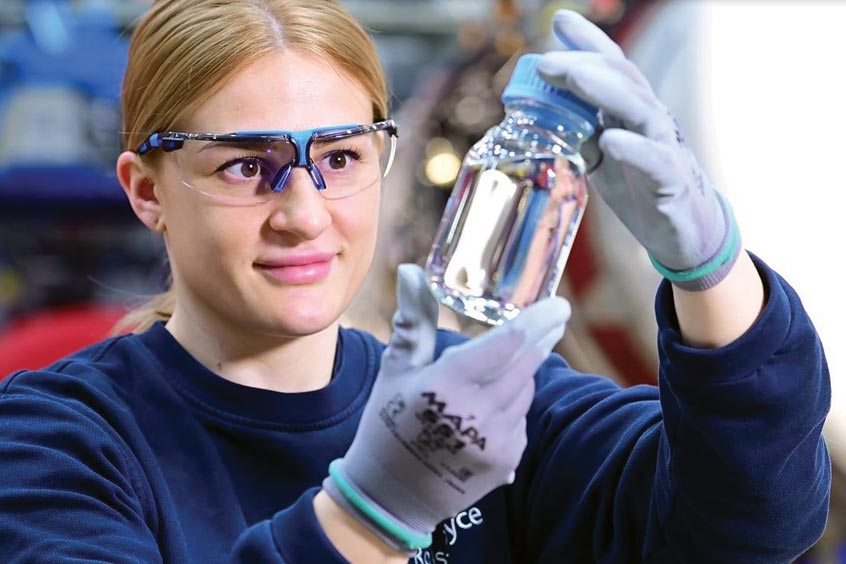Why visit ACE ’25?

Rolls-Royce has signed a memorandum of understanding with clean tech developer and greencrude producer Alder Fuels to further test sustainable aviation fuel (SAF) as it makes the critical next step on its journey to commercial scalability. The SAF, which has been produced based on Alder Fuels' proprietary greencrude technology, is being readied for global rollout as a drop-in replacement to petroleum-based jet fuel and will be a critical tool for decarbonising the skies.
The testing, which will include flight tests on a Rolls-Royce Pearl engine, will evaluate the energy efficiency, emissions criteria and low carbon credentials of the SAF produced from Alder Greencrude and is another testament to Rolls-Royce's ambition to play a fundamental role in enabling the sectors in which it operates achieve net zero carbon by 2050.
Rolls-Royce SVP strategy and future programmes, business aviation Frank Moesta says: “The use of sustainable aviation fuel as a low emission solution and its global commercial deployment are essential to the decarbonisation of medium to long haul air travel. While we are also working on electrification, hybrid-electric and hydrogen technologies as long-term alternatives, rapid decarbonisation is within reach through this critical pathway. Through our partnership with Alder Fuels, we are taking the next steps on our journey to net zero and are committed supporters of the UN Race to Zero goal of 10 per cent SAF use across aviation by 2030.”
“At Alder, we are on a path to transform energy on the global stage, and partnership is key to our vision. As a pioneer in both industrial technology and sustainable aviation, Rolls-Royce will play a leading role in decarbonising the aerospace industry. Its name is synonymous with the best of engineering,” adds Alder Fuels president and CEO Bryan Sherbacow. “Our hope is that this collaboration will not only mark an important milestone for the decarbonisation of aviation, but that it will send a strong global signal to the market that the future of sustainable flight is here and the time to transition is now.”
Alder Fuels uses sustainable biomass such as regenerative grasses, forest residues and agricultural waste products to create low-carbon Alder Greencrude that can be converted into a drop-in SAF using existing bio and petroleum refinery infrastructure. The process, developed in close partnership with the US Department of Energy's National Renewable Energy Laboratory, can achieve greenhouse gas reductions of over 80 per cent compared to fossil-based jet fuel.
The engine tests will assess the performance of AGC-derived SAF compared to fossil-based jet fuel to further support its performance as a drop-in replacement for traditional jet fuel and generate critical data for the development of a 100 per cent SAF specification by ASTM International. In addition, the SAF will undergo a full lifecycle and criteria emissions assessment, and the data associated with this assessment will be transparently reported to advance global decarbonisation efforts.
Rolls-Royce has previously committed to ensuring all its Trent and business aviation engines are compatible with 100 per cent SAF by 2023. All Trent and business aviation engines are already certified and ready to operate on a 50 per cent SAF blend with traditional fossil-based aviation jet fuel.